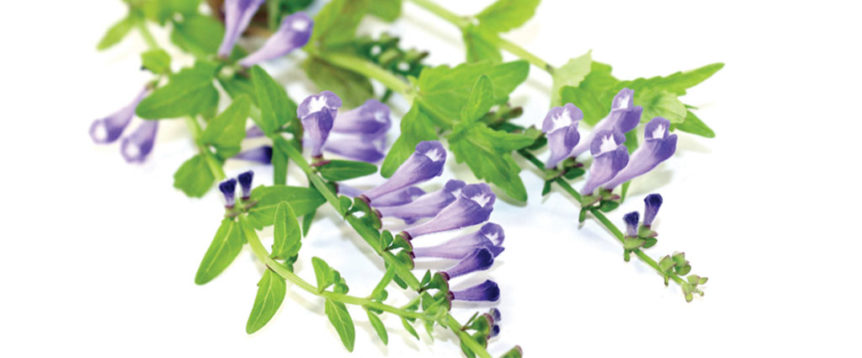What is it?
Skullcap is an antioxidant herb from the mint family. Its name purportedly comes from the shape of its flower, which resembles a medieval helmet. Two main varieties are used as supplements: Scutellaria lateriflora or American skullcap, and Scutellaria baicalensis or Chinese skullcap. Each has different reported benefits.
Skullcap’s blue flowers are said to resemble the helmets of medieval European soldiers—hence the “skullcap.”
Use it for
American skullcap may ease anxiety and muscle spasms, and elevate mood. Chinese skullcap is used to enhance memory, protect brain cells, reduce blood sugar and treat respiratory infections. Both kinds may decrease inflammation, reduce hardening of the arteries and prevent the growth of certain cancers.
The science
Traditional use and anecdotal evidence is plentiful, but modern, scientific studies on skullcap are limited. A placebo-controlled, double-blind study found that American skullcap diminished anxiety in its 19 subjects, and multiple animal studies have shown Chinese skullcap to improve cognitive function. Multiple in vivo studies suggest that both American and Chinese varieties can inhibit cancer cells; specifically, skullcap has shown effects against prostate, lung, brain and fibrosarcoma (connective tissue) cancer cells.
How to take it
Skullcap is most common in capsule and tincture form, but it is also sold dried to be used for tea. No medicinal dose has been determined, so consult your health practitioner. The primary reported side effect is that it can slow down your central nervous system, so avoid taking it for two weeks before undergoing anesthesia. Chinese skullcap can also lower blood sugar levels, so diabetics should use with caution.
Try It:
Nature’s Answer Skullcap


